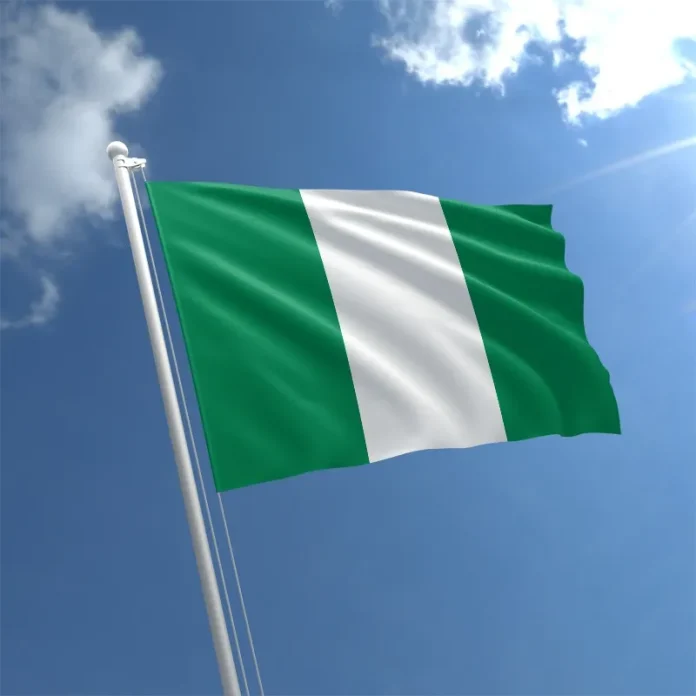BY DAKUKU PETERSIDE
NIGERIA’S economy is charting the course of tempestuous waters of the “Red Zone,” a realm of acute instability filled with uncertainty and wavering hope. Now, it navigates the “Amber Zone,” a twilight of cautious recovery, where the faint glow of progress meets the shadows of persistent challenges. Yet, the horizon beckons with the promise of the “Green Zone,” a sanctuary of enduring stability and prosperity. The path forward, however, is a rugged ascent, demanding resolve, innovation, and unity to transform into reality.
While macroeconomic indicators point toward progress, such as a GDP growth rate of 3.19 per cent in Q2 2024, primarily driven by a 3.79 per cent growth in the services sector, contributing 58.76 per cent to the GDP, the lived realities of the average Nigerian tell a different story. Local and foreign investor confidence is dwindling, and living conditions for the majority remain stagnant or deteriorate. The World Bank, in its 2023 publication, estimates that 104 million Nigerians are living below the poverty line. Unemployment remains high, with youth unemployment exceeding 42.5 per cent, reflecting a deep disconnect between economic data and societal realities. Most Nigerians are disillusioned regarding the economy, which is not a good place to be.
Economic statistics churned out by the government through her agencies often seem irrelevant to many Nigerians due to a disconnect between reported improvement of the economy and lived experiences. This glaring disconnect calls for an urgent and deeper analysis of structural challenges and a recalibration of policies to foster inclusive and sustainable growth. Paradoxically, it raises fundamental concerns about the structure and management of the Nigerian economy and calls for a more inclusive, innovative, and transformative approach to economic growth.
The pervasive mistrust of Nigeria’s economic data, policies, and management is a fundamental issue. Citizens increasingly view government-released statistics as detached from reality, more reflective of political posturing than actual economic conditions.
This scepticism is fuelled by persistent inequality and perceived poor leadership. In Nigeria, extreme wealth concentration is evident, according to a 2023 Oxfam international publication, with the wealthiest 0.003 per cent (approximately 6,355 individuals) possessing four times more wealth than 107 million Nigerians combined. Such disparities question the utility of economic policies that ostensibly promote growth but fail to address the systemic exclusion of millions from its benefits. Besides, many Nigerians view government economic policies with suspicion, often associating them with inefficiency, corruption, and a lack of transparency. For instance, reports from the Auditor- General consistently reveal irregularities in public spending, reinforcing public perceptions of mismanagement. This erosion of trust undermines the government’s ability to mobilise support for economic reforms.
Foreign and local investors’ confidence, a critical indicator of economic growth, has been significantly eroded. This decline is symptomatic of deeper issues, including weak property rights, weak enforcement of contracts, policy inconsistencies, judicial inefficiencies and deep-rooted corruption. The absence of a robust local investment climate is evident, and local investor confidence is waning. We cannot look far into why foreign investors are foot-dragging to where local investors do not have faith. In Q1 2024, Nigeria’s foreign direct investment (FDI) inflows, according to NBS, grew to $3.4 billion, an increase from the previous quarter, indicating improved investor confidence. However, FDI contribution to capital importation remains very low, indicating that few investors are ready to bring new funds to the economy, primarily due to economic instability. The World Bank’s 2023 Ease of Doing Business report ranked Nigeria 131 out of 190 countries, highlighting the structural barriers to investment. However, the potential of entrepreneurship, if supported, can be a beacon of hope for Nigeria’s economic future.
Critically, the government’s efforts to improve the ease of doing business have yielded limited results. While initiatives like the Presidential Enabling Business Environment Council (PEBEC) have streamlined some processes, significant bottlenecks persist. These bureaucratic hurdles deter foreign investors and local entrepreneurs, undermining job creation and economic resilience.
Currency instability compounds the challenges of economic mismanagement. The Naira’s value has declined precipitously, losing over 200 per cent against the dollar since the central bank unified exchange rates in 2023. The Naira’s recent depreciation — exceeding ₦1,700 to the dollar in parallel markets — has far-reaching implications, eroding purchasing power and deterring investment. This volatility undermines business planning and household budgets, exacerbating inflation at a staggering 33.88 per cent as of October 2024. Such instability erodes trust not only in the economy but also in the institutions tasked with managing it. The inability of the Central Bank of Nigeria (CBN) to stabilise the Naira raises critical questions about the competence and independence of fundamental economic institutions.


